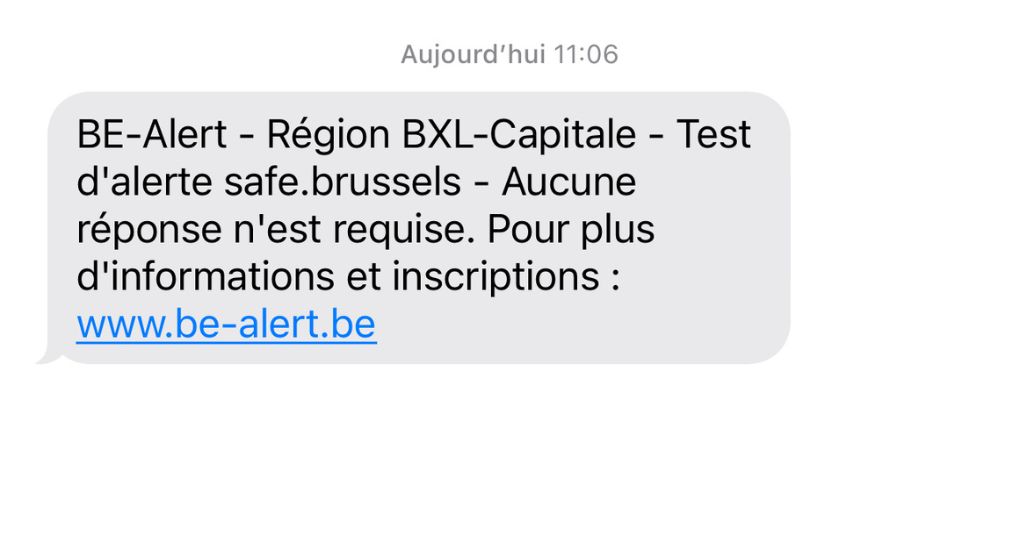The BE-Alert SMS alert system was tested this Thursday by safe.brussels, in collaboration with the National Crisis Center, in order to measure the tool’s capabilities and encourage citizen registration.
The exercise takes place as part of the national test day of the BE-Alert system organized quarterly, the first Thursday of the month. This type of large-scale maneuver makes it possible to evaluate the capabilities and speed of the system while identifying possible areas for improvement. The National Crisis Center will carefully analyze the test results once it is completed.
► SEE ALSO | Why was the BE-Alert system not activated after the attack? The Crisis Center justifies
According to recent figures, there are currently more than 1.2 million (1,223,699) addresses registered on the platform, including “only 6% of Brussels residents“. Faced with this observation and in addition to Thursday’s test, safe.brussels carried out a one-month, 100% digital campaign aimed at raising awareness among Brussels residents.
“If 95,000 Brussels residents are already registered with BE-Alert, this number remains relatively low“, explained the senior official of the Brussels Agglomeration Sophie Lavaux. For this reason, “we are participating in this test day to remind people of the importance of being alerted in the event of an incident so that citizens are able to adopt the right reflexes“, she continued.
► SEE ALSO |Storm Louis: why did the people of Brussels receive a BE-Alert text message?
Registering with BE-Alert is free and can make the difference in an emergency situation – whether it is a power outage, pollution of drinking water or even a water evacuation. ‘a district. The system thus makes it possible to receive messages directly and without delay from local, provincial and national authorities in the event of an emergency.
As part of this alert system, the General Data Protection Regulation (GDPR) is strictly followed, according to safe.brussels.
■ Reporting from Brian Mommart, Frédéric de Henau and Pierre Delmée


